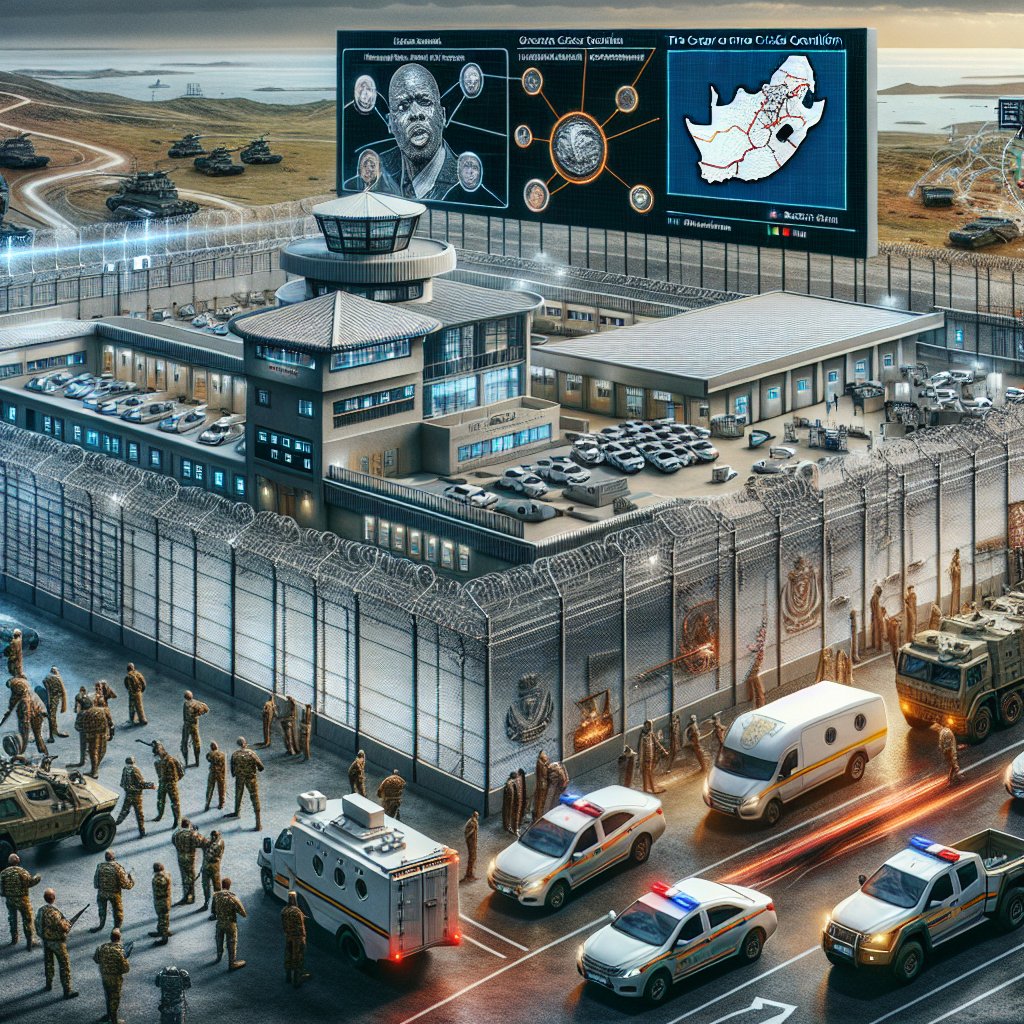Image created by AI
DCS Probes Unauthorized Relocation of Gang Leader to Western Cape Prison
The Department of Correctional Services (DCS) of South Africa is in the midst of a comprehensive investigation following an unapproved movement of one of South Africa's most feared gang leaders, George "Geweld" Thomas, from a high-security prison in KwaZulu-Natal to Helderstroom Prison in the Western Cape. This move has triggered grave concerns among community leaders regarding the safety implications for the region, already grappling with gang turf wars.
The revelation came to light after local community representatives from the Cape Crime Crisis Coalition (CCCC) expressed their dismay at the news, prompting immediate action from the DCS. DCS spokesperson, Singbakho Nxumalo, confirmed that Thomas has been reassigned to an undisclosed maximum-security facility amidst the ongoing probe which aims to unearth the rationale behind his unexpected inter-prison transfer.
George "Geweld" Thomas, who holds significant influence over the 28s, a formidable faction within South Africa's notorious prison gangs, was previously incarcerated at the Embogweni Prison in Kokstad—a facility with a reputation for being one of the nation's most secure institutions. The decision to move a high-profile inmate like Thomas, without transparent justification, provoked suspicion and fear of increased gang activity and influence in the Western Cape, a region that has been trying desperately to contain and curtail the reach of these criminal networks.
In efforts to quell anxieties and stand in solidarity with concerned citizens, Minister of the DCS, Pieter Groenewald, met with the CCCC. During their discussion, a commitment was made towards working collaboratively to strengthen the trust between the affected communities and the correctional system, as well as establishing measures aimed at mitigating the impact of such criminal elements.
As this situation continues to unfold, the investigation remains crucial to both holding accountable those within the DCS responsible for this oversight and establishing safeguards to prevent future recurrences. The broader impact of such events reaches far beyond the prison walls, resonating throughout communities that bear the brunt of gang-related oppression and violence. The DCS's swift response to this incident is not just a matter of bureaucratic procedure—it is a step towards ensuring the peace and security of the citizens it serves.










